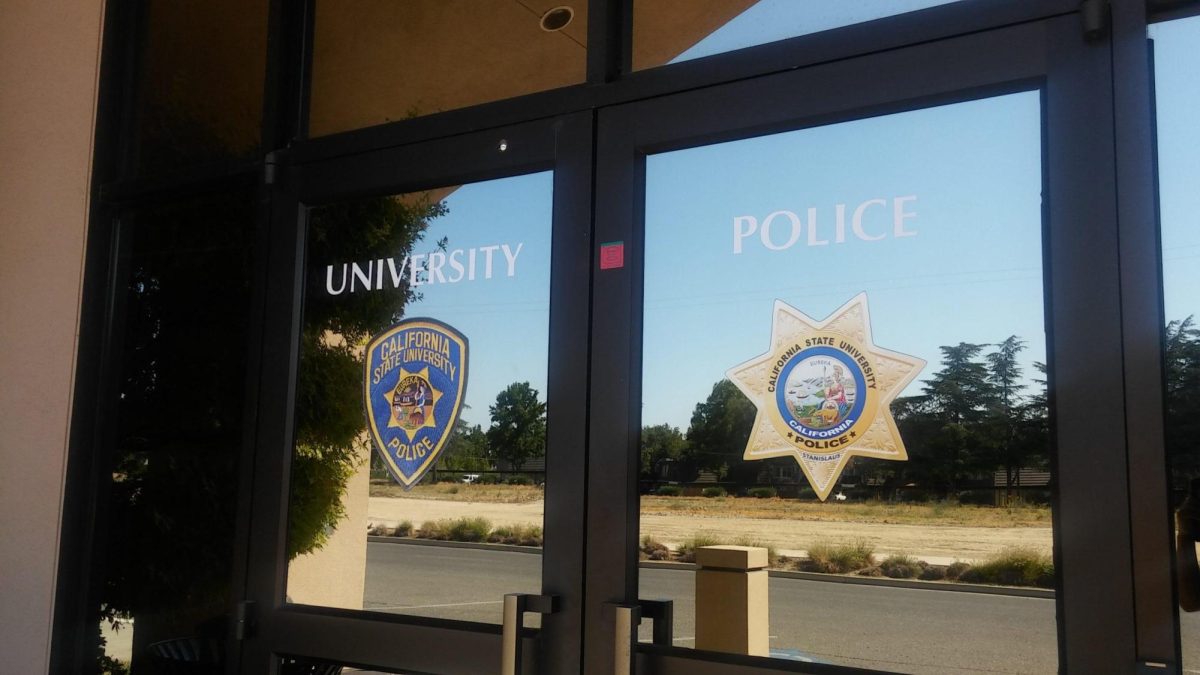The United States has seen a sharp rise in young people beginning to invest in the stock market after the Coronavirus pandemic caused markets to crash in March.
As worldwide shutdowns and border closures were being implemented in response to the COVID-19 pandemic in the early months of 2020, the United States stock market fell victim to the fastest plunge in history, with the Dow Jones experiencing the largest one-day loss ever. With the Dow Jones down by nearly 3,000 points in a single day, many people, especially younger individuals, felt the only way for the markets to go from there is up and started to invest. Stan State economics professor Gökçe Soydemir explains that, “The market has gone to very extreme lows and that alone provided a very rare opportunity to get into the market.”
Stan State student Matthew Pruitt (senior, Business Administration) was one person who decided to jump into the world of investing this year. Pruitt says that, when the markets were down in June, there was online hype surrounding several low-end stocks, including a penny stock of an entertainment company named Genius Brands. Pruitt explains that he and other investors were expecting the stock would rocket when the company released its cartoon channel to the public.
Pruitt says that stock of Genius Brands ended up dropping, which led him to lose money. Instead of giving up after his negative experiment, Pruitt says he used the cheap, low-risk experiment as a learning experience. “The hype that I invested in June was a failure,” Pruitt says. “I have learned to not follow what strangers on social media say about what will happen to a stock, but to research on a reputable website.”
Third-year Merced College Business and Finance student Isaias Cortes is another individual who is currently investing in the stock market. Cortes explains that he has been investing since 2018, but ramped up his investing in March when the markets were down.
“I initially entered the stock market in the month of September back in 2018. There were a lot of advertisements at that time for the widely known investing application Robinhood. At that time, I was just experimenting with my money. All that changed in March 2020 when the stock market hit one of its lowest points in history. I noticed a lot of opportunities, so I decided to take action and open four brokerage accounts,” said Cortes.
Like Cortes, Pruitt also began his investing career on Robinhood. Mobile apps like Robinhood have created colorful platforms that offer free memberships and zero investment fees. Apps like Acorns and Stash are other investment apps that have also offered modernized and trendy platforms that attempt to simplify the trading process. Finance and investment magazine Barron’s has reported that free trading apps like Robinhood have seen an increase of over 3 million new investors in 2020. According to Pew Research Center, 41 percent of active investors are under the age of 35. Nevertheless, as Stan State economics professor Edward Erickson explains, these popular apps have their benefits and disadvantages.
In terms of the advantages, Erickson expressed his delight with online platforms offering no cost trading with no account fees or minimum balances. “This is great to encourage investing with no transaction costs. Too many young people think they do not have enough money to get started. With online trading and discount brokers, this is not true and really never was…”
Erickson also explains how many of today’s popular apps encourage investors to day trade, making a small profit that could add up over time the more you do it. With free investing apps having such easy navigation features, it is easy to see why new investors would enter the day trading universe and make costly mistakes. “One clear risk of Robinhood and similar venues is that individuals are tempted to do short-term trading since there are no commissions,” Erickson says. “This is more speculation than investing for the long-term.”
Cortes says that he has tried both long- and short-term investment strategies and agrees with Erickson’s assessment of day trading. “Before I got into day trading, I was swing trading, which was far less stressful than day trading,” Cortes explained. It’s a lot riskier to day trade… you can’t treat it like a game or even gambling. When you get into the stock market, you have to be able to control your emotions.”
Soydemir believes that investing should only be done in the long term. “Do not day trade, if you do, you will almost certainly lose. [Since] the markets are efficient, it is not possible to make systematic abnormal profit by day trading,” Soydemir explained. “Instead, pick stocks of those companies with strong fundamentals and growth potential and become vested in them for 15-20 years… During these [next] 10 to 20 years, stock markets will go through several big corrections. It is very important not to sell during these corrections in order to accumulate wealth in the long term.”
“Begin early by investing in the stock market in small amounts and accumulate in a gradual fashion over a 15-20 year period,” Soydemir adds. “See it like buying a house. You buy a house or invest in it and you live in it for a long period of time. During that time, the house appreciates value. This is the kind of approach you should have in the stock market. Nobody gets rich very quickly.”
While it’s not common for somebody to get rich quick, it’s extremely easy for people to quickly lose massive sums of money, or to have serious misunderstandings regarding their investments and finances. An example of a serious misunderstanding occurred in June, when 20-year-old University of Nebraska student Alexander Kearns took his own life after beginning to trade on Robinhood and incorrectly thinking he had a negative balance of $730,165.
A note that Kearns wrote saying he had “no idea” what he was doing led many economic experts, including Soydemir, to believe that some of these popular apps are not doing enough to educate and protect newer traders. “They are certainly not doing enough to protect young investors. Trading is done by professional traders, it’s a 24-hour job. Plus, it requires a lot of skill,” Soydemir says.
Both Cortes and Pruitt say that Kearns’ death rocked the investing universe. They say that, after heavy backlash from the public, these apps and investment firms took steps to provide more resources and offer better advising to their clientele in hopes of avoiding similar tragedies.
“Recently, they made a change to their options trading platform, like calls and puts, after [Kearns] committed suicide over a mistaken negative balance of $730,000. This is a rare occurrence and I think consultation with customer service would have solved his issue; however, they now require customers to disclose their trading experience and acknowledge the risks that trading options brings before they trade options contracts,” Pruitt explains. “In addition, Robinhood now offers a beginner stock trading guide on their website so they provide a plethora of information as an app.”
Educating yourself about the many risks and benefits of investing can take lots of time, which is why many young people who are interested in the practice have delayed jumping into the stock market.
Stan State’s Sukhman Sodhi (senior, Accounting) says that she is very interested in getting into stocks, but explained that she is in no rush to get involved. “I’ve always been too scared of losing money. I just don’t have that kind of disposable income. When I eventually get a decent job and learn more about investments, then I’ll start trying.”
Erickson, Cortes, Pruitt and Soydemir all offered advice to those who are exploring the idea of investing on the stock market.
Pruitt previously advised newer investors to not follow the advice of random people online, but he says getting a general idea of how others are approaching more stocks can still be valuable. “I think it’s a good idea to join social media groups dedicated to stock trading on Facebook, Discord, and etc. to get an idea of how others are investing or what advice they give,” Pruitt says. “However, do not base your trading strategy on theirs. Everyone has different goals in the market, and just because their strategy works for them does not mean it will work for you.”
Although Pruitt also previously advised against investing in hype, he say that hype can still be good for more reliable and stable stocks. “Pay attention to what stocks are hyped and what kind of companies those are. A hype on an Apple and Tesla stock is important and something to look into than, let’s say, a penny stock people are investing in.”
While Pruitt is moderate on his views regarding the advice of those on social media, Cortes is much more confident in his trust in social media. Cortes says that YouTube channels like Ricky Gutierrez and Our Rich Journey have offered him some great guidance.
Pruitt adds that more thorough and professional research is still necessary, though. “Do your research and plan how much you are willing to allocate to stock trading. I recommend not investing in an amount you are not willing to lose, for example, your whole life savings.”
“Know yourself and your temperament. We are human and we all have weaknesses. Know what they are so you can control them,” Erickson added.
One last thing that Pruitt recommends for newer investors is to diversify their portfolios if they are investing in multiple companies. “Do not invest in multiple companies in the same industry,” Pruitt says. “If the industry fails, then most all companies are going to fail. Right now, with the coronavirus, pharmaceutical and tech companies were booming, so investing in a company from the pharmaceutical industry and one from tech would be an example of diversification.”
Erickson adds that Stan State students who have a strong interest in the stock market and the economy can enroll in ECON 4500, a course in which he originally designed nearly 40 years ago. Additionally, a scholarship in honor of the Stan State’s first Economics Department Chairman Dr. F Kottke has been set up.
There is much debate surrounding the benefits and risks of investing, but one thing is certain: young people are excited about the opportunities that the stock market may offer.
Categories:
Why More and More Young People Are Jumping Into the Stock Market
Christopher Correa
•
October 26, 2020
Many young people, including several at Stan State, have begun to explore the investment opportunities that the stock market may offer. (Graphic by Ethan Hunt)
0
More to Discover







